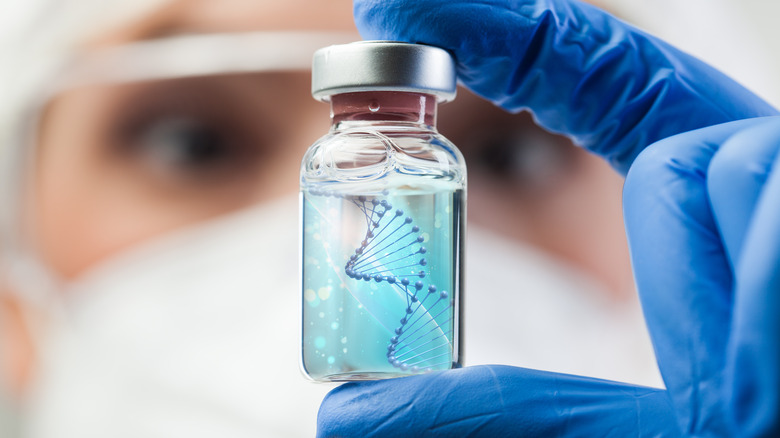The Groundbreaking Way Scientists Can Now Study Your DNA
In 2003, the Human Genome Project made groundbreaking history by arranging 92% of the human genome, according to CNN. Because of its complexities and repetitions, figuring out the correct order of the remaining 8% has been a struggle — until yesterday. On March 31, 2022, the Telomere-to-Telomere (T2T) Consortium and its team of almost 100 scientists finished the job and revealed the complete human genome. Research leader Evan Eichler said that the completed sequence will allow researchers to gain a clearer understanding of how individual organisms form and vary from other humans and species.
Some of the genes uncovered are what make the human brain bigger than those of other primates, giving insight into what makes humans different, Eichler said. With the full genome, scientists can now investigate the role DNA variations play in disease. Eichler noted that the completed sequence contains genes that can help determine immune responses to drugs.
Decoding the human genome
Along the journey of completing the human genome, CNN says researchers came up against two major battles. First, piecing together DNA in the correct order was hard to achieve without the proper technology. Scientists had to depend on two DNA sequencing technologies that were developed over the past 10 years. The Oxford DNA sequencing method is known for being able to arrange up to one million DNA letters at once, but not without mistakes. The PacBio Hifi DNA sequencing method can't read nearly as many letters at once (only 20,000), but it has 99.9% accuracy. Between the two methods, 400 million letters were introduced, which amounts to that of an entire chromosome.
The second challenge involved finding cells that only had one genome. Instead of using both a maternal set and a paternal set of DNA, researchers used a complete hydatidiform mole, which is a duplicate of the paternal set. As a result, they only needed to sequence one set. Initially, they were unable to piece together the Y chromosome, but a complete set of 24 chromosomes available at the University of Santa Cruze was able to help them get it decoded.
Over the past 19 years, it cost the Human Genome Project nearly $500 million from start to finish. Though he wasn't involved in the research, Charles Rotimi, scientific director of the National Human Genome Research Institute, is hopeful this advancement will move "us closer to individualized medicine for all humanity."


